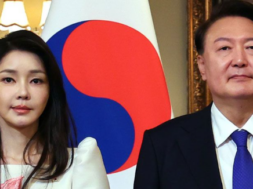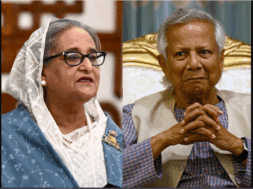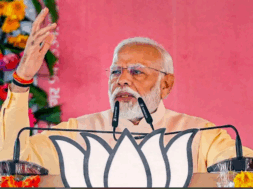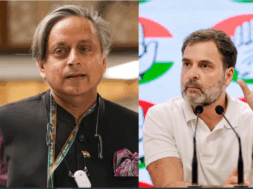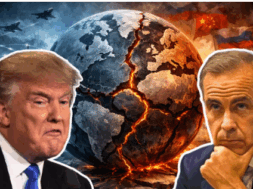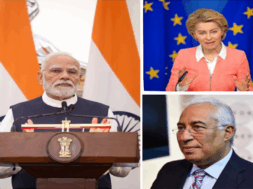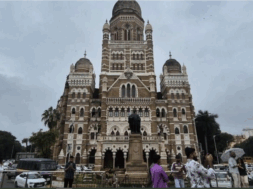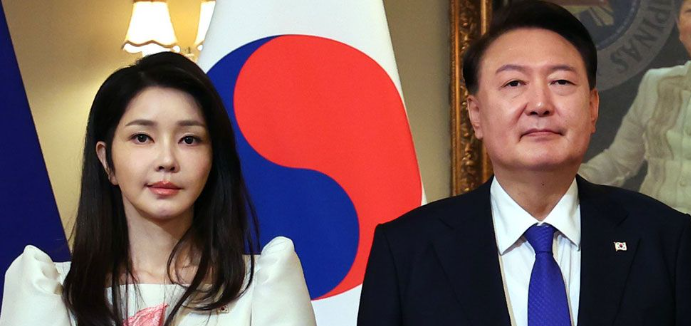
South Korea: Post-martial law debacle, President Yoon may face impeachment
Virendra Pandit
New Delhi: In an unprecedented move, the police in South Korea, which is threatened with ‘extinction’ by the turn of the century because of an alarming rate of depopulation, has launched an investigation into President Yoon Suk Yeol’s extreme step to impose emergency and martial law, which he had to withdraw within six hours amid the people’s pressure and the security forces’ ‘non-cooperation, on Wednesday.
The embattled President is likely to face even an impeachment, although he tried to blame North Korea also for his woes.
According to the media reports on Thursday, the South Korean police are investigating the President for potential insurrection, following his sudden martial law declaration, which led to nationwide political turmoil and international condemnation.
Woo Jong-soo, the head of the National Investigation Headquarters of the National Police Agency, confirmed that the case had been assigned for investigation during a parliamentary session.
President Yoon’s controversial decision on Tuesday to impose martial law, aimed at banning political activities and censoring the media, ignited outrage both at home and abroad. The immature move, intended to quell mounting unrest, prompted a dramatic standoff when the armed troops briefly attempted to enter the National Assembly building in Seoul but withdrew due to popular protests.
The extremely tense situation de-escalated only when parliamentary aides, armed with fire extinguishers, confronted the soldiers, forcing them to retreat.
Angry, the Opposition Democratic Party lawmakers announced plans to hold a vote this week to impeach the President. “The Yoon Suk Yeol regime’s declaration of emergency martial law caused great confusion and fear among our people,” lawmaker Kim Seung-won said during an early morning session in the National Assembly.
If successful, the impeachment motion will require at least eight members of the ruling People Power Party (PPP) to support the bill, securing a two-thirds majority in the 300-seat parliament. However, the PPP is largely opposed to impeachment, with key figures expressing their support for Yoon as he faces one of the most significant challenges to his presidency.
Trying to contain damage, President Yoon accepted the resignation of Defence Minister Kim Yong-hyun, who had advised him to declare martial law.
Kim ordered the deployment of troops to parliament, without even informing Vice-Defense Minister, Kim Seon-ho, who later regretted the failure to prevent the military intervention. “I have fundamentally opposed the mobilization of military forces under martial law and have expressed negative opinions about it,” he told a parliamentary hearing on Thursday.
The martial law debacle also drew sharp reactions from international allies. Outgoing US Secretary of State Antony Blinken expressed concern that the United States had not been kept in the loop, with Deputy Secretary Kurt Campbell criticizing Yoon for “badly misjudging” the situation.
The December 3 news shocked the world, especially the South Koreans, who had long enjoyed the benefits of democracy and only studied the imposition of martial law in their history lessons.
The announcement prompted angry lawmakers and citizens to rush to the National Assembly, where the opposition, led by Lee Jae-myung, head of the Democratic Party, also reached. As the troops failed to enter the building, the National Assembly’s vote forced the President to lift martial law only after six hours.
However, the martial law decision was not entirely unexpected. Many experts discussed the possibility after the recent controversial appointment of close allies to President Yoon’s cabinet, raising the likelihood of a ‘palace coup’.
President Yoon’s administration has been mired in allegations of rampant corruption and misgovernance since 2022. The First Lady, Kim Keon-hee, was also accused of corruption, scandals, and exerting undue influence on the Presidential office. To his discomfiture, the Opposition secured a majority in the April elections, making it difficult for his party to pass legislation and conduct normal proceedings.
The all-round pressure from within and without intensified in September when the 22nd Assembly’s first regular session began. The House turned hostile, repeatedly demanding accountability from the President over his wife’s controversial activities.
Only last week, he vetoed an Opposition bill for the third time, calling for a special counsel investigation into the First Lady’s alleged corruption.
To reclaim his sagging reputation, the President announced on Tuesday: “I declare martial law to protect the Republic of Korea from the threats of North Korean communist forces, to immediately eradicate the unscrupulous pro-Pyongyang anti-state forces that pillage the freedom and happiness of our people, and to protect free constitutional order.”
He also described the opposition’s decision to block the National Assembly from functioning as a “legislature dictatorship”, which, he claimed, paralyzed the administration and sabotaged state functions. The speech betrayed his frustration with the opposition in the country.
The President also faced increasing pressure from within his party, particularly from Han Dong-hoon, the People Power Party (PPP) leader, who publicly urged the President to take action.
